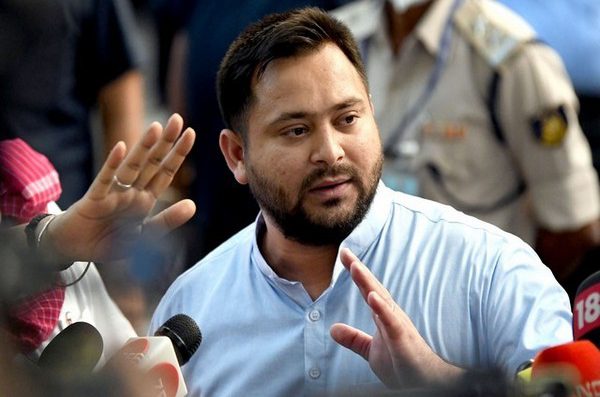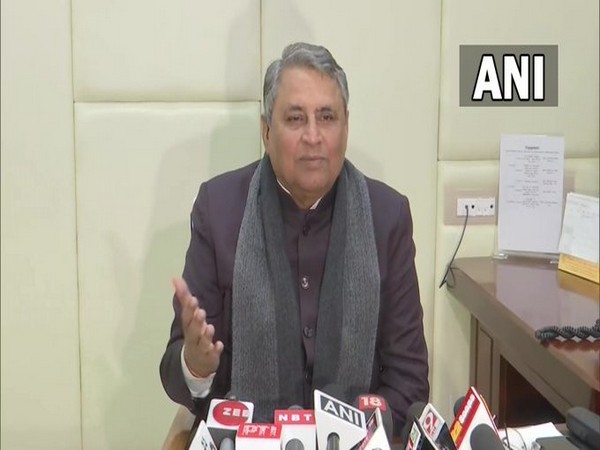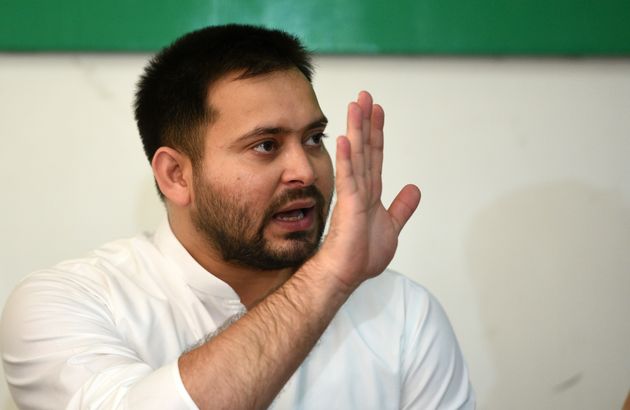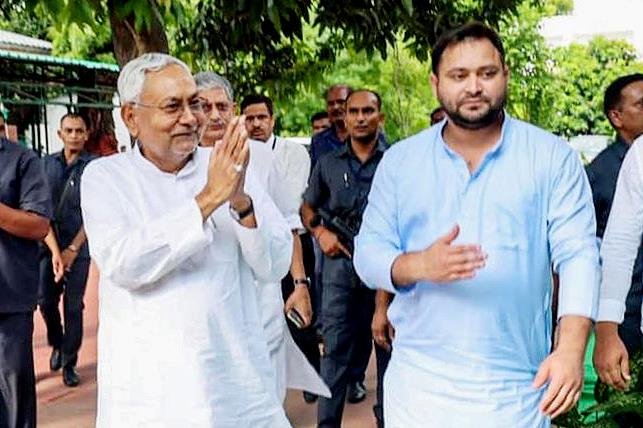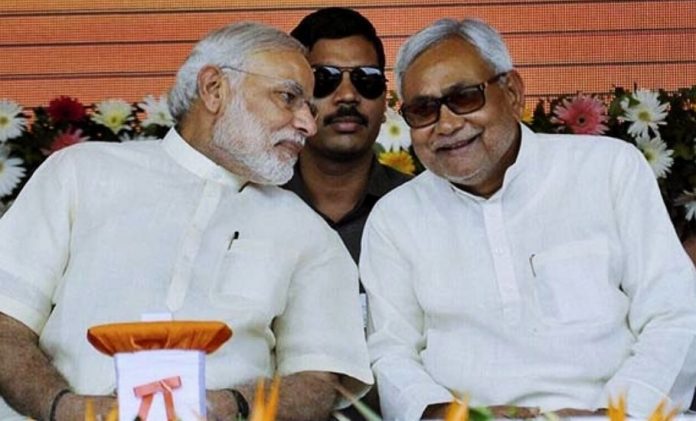The same old, boring Paltu Ram and Aya Ram-Gaya Ram jokes are back, and predictably so, with Nitish Kumar as the chief protagonist in the current public spectacle being played out in Bihar, one of the key states in the Hindi heartland. Along with UP, as is the irony, it shapes the future of the high power stakes at the Centre in Delhi, even while states like Tamil Nadu, Kerala, West Bengal, Telengana, Rajasthan, Punjab, even Maharashtra and Delhi, have consistently blocked the roller-coaster ride of the BJP in recent years.
In the shifting quagmire of Indian politics, with the secular society and its jobless economy in dire straits, with ordinary people and the poor struggling to make two ends meet, while the corporate multi-billionaires seem to be flourishing with obscenely unprecedented profits, the paradigm shift in Patna, obviously, stretches beyond the clichéd laws of morality and immorality. Clearly, it is democracy at stake in contemporary India, and, Patna, like Bengal earlier, and Punjab recently, might just show the way. Indeed, will it?
There are transparent pointers of optimism which emerges from this fast-unfolding scenario even as a stunned BJP and its well-oiled party machine with deep pockets, seems, at once, flummoxed and dazed. For one, it proves that even if everything is in your favour, institutions, money, muscle, agencies, much of mainstream media – you might still lose the game; that you just might not get away with over-confidence or arrogance, while the ground is shifting under your feet.
Indeed, despite its Congress-mukt rhetoric, which is often interpreted as ‘opposition-mukt’ discourse – surely, not a good sign in a pluralist democracy – the BJP might be feeling suddenly lonely after a long, long time. Barring the faction led by Eknath Shinde, and with the defeated faction of the AIADMK floundering in the dark, it does not really have any strong political or electoral ally in the entire country! In the North-east, barring Assam, where loyalties are forever shifting as per the power game in Delhi, its role is minimalist in the coalition governments. Even in Jammu and Kashmir, despite the clampdown and the abrogation of Article 170, there seem to be little political gain – it stands virtually alone, even while there is a wave of restlessness stalking its supporters in Jammu.
In Bihar, it used an immature Chirag Paswan to cut into the votes of JD(U) in the last assembly polls, which was resented silently by Nitish Kumar, who was then hanging by a slender thread, with the dominant BJP as his scaffolding. Ask any old supporter of Ram Vilas Paswan in Hajipur/Vaishali, his erstwhile base, and they would unanimously say that Chirag made one mistake after another. He should have simply accepted the offer of Tejeshwi Yadav and made a ‘youth alliance’ — which he did not. Hence, his downfall, partly of his own making, and, as his late father’s supporters openly contend, has been mainly manufactured by the machinations of the BJP.
Meanwhile, apart from the other contentious issues like the caste census, upping the ante on Kashmir, poking into the fragile and effective alliance of the backwards and minorities which Nitish Kumar had stitched up with meticulous social engineering, among other issues, the BJP seemed to be playing the Eknath Shinde card in Patna as well, using a particular JD(U) leader. This is part of a pattern, and is reflective of all dominant parties which become kind of blind, dazzled by the sheer luminance of their power and their formidable electoral machinery. Even Congress or the CPM did not shy away from displaying such brazen violations of democracy during their heydays in Delhi and Kolkata. Now, they know so well, how ephemeral it all can be!
That is why, Tejeshwi Yadav is on the dot when he says: “You see the BJP’s old allies now, from Punjab to Maharashtra to Bihar. They tried to finish their allies at all these places. Now the BJP has no allies in the entire Hindi heartland. The BJP had been trying to subsume the JD(U) too. But, we are socialists. Nitish Kumar is our ancestor, and we alone should hold on to his legacy,” the RJD leader.
As for the question of Nitish Kumar being ‘socialist’, or following the ethical principles of socialism in his daily life or in his political conduct, as a follower of JP, Acharya Narendra Dev and Ram Manohar Lohia, the verdict is out there in the open — in his slippery and opportunist past. For instance, in February 2002, during the tragic Godhra incident when Coach S-6 of the Sabarmati Express was set on fire by unknown miscreants, he happened to be the Union Railway Minister in the Atal Behari Vajpayee government in Delhi. Either way, he did not move an inch.
Even while this gruesome incident and the death of passengers in the train was openly used in the organized genocide which followed in Ahmedabad and other parts of Gujarat, leading to mass murders, gang-rapes, burning and hacking of innocent people, especially and mostly Muslims, with the state government looking the other way, he chose to be largely mum.
And, most crucially, even as Laloo Yadav, like the Congress or the Left, never aligned with the BJP or RSS-backed organizations, he has had no such ideological qualms of the conscience. Like another alleged ‘socialist’, Ram Vilas Paswan, who also had the uncanny knack of sensing which way the wind was blowing, and, thereby, was almost always sitting cosy in cushy power positions in Delhi under various regimes, from that led by VP Singh to UPA and NDA, etc — ideology can go get damned.
After the dynamic shift in Bihar, whereby 60 per cent of the electoral arithmetic now seems to be pitched against the BJP, there is another new theory being built up by Nitish-loyalists yet again – that he is a potential PM candidate in 2024 leading a mythical opposition alliance. It is also being widely assumed that the current, restless coalition stitched up in Maharashtra by the BJP might eventually fall like a pack of cards, even as the original Shiv Sena, led by Uddhav Thackeray, and the NCP-Congress-Sena coalition, will continue to have the high moral ground, while not facing any anti-incumbency factor.
Combine this factor with the fact that the Karnataka and Madhya Pradesh governments led by the BJP have been formed by breaking the Congress, using the same time-tested tactics as in Maharashtra recently, and that in UP it is not all that strong as it seems so, especially with farmers in Western UP vehemently opposed to the BJP, 2024 might not be a dream-come-true for the ruling party.
Besides, the ED raids seemed to have galvanized a slumbering Congress party, still struggling to find the wood from the trees. Its recent, rather aggressive agitation in Delhi, facing lathis and jail, with Priyanka Gandhi breaking the barricades and being pinned down forcibly by women cops, and its proposed Bharat Jodo campaign starting from Kanyakumari across the nation in commemoration of the Quit India movement against the British empire, seems to have inspired the party cadre.
The simmering unrest, angst and anger over back-breaking price rise, GST, Agnipath and mass unemployment, is a bitter reality which no PR-campaign or communal polarization can eliminate. Given the circumstances, with Mandal politics finding its roots yet again in Bihar as a winning coalition against Hindutva, the opposition has reasons to be upbeat.
The only catch, however, with Nitish is, that no one knows when he will sink the boat he is sailing, and jump on to another!As a chief minister he has done it umpteen times, comfortably aligning with Rightwing and communal forces. And, if he is indeed chosen as a PM candidate — highly unlikely as of now — who knows what brand of ‘socialism’ he would follow while at the helm?
